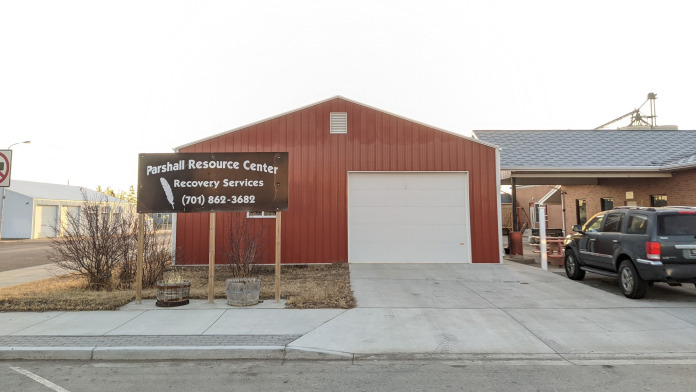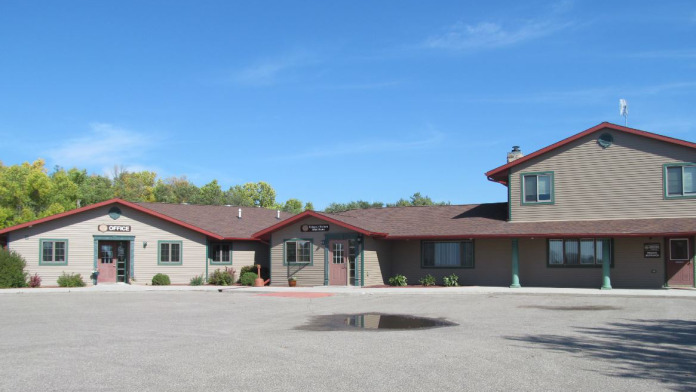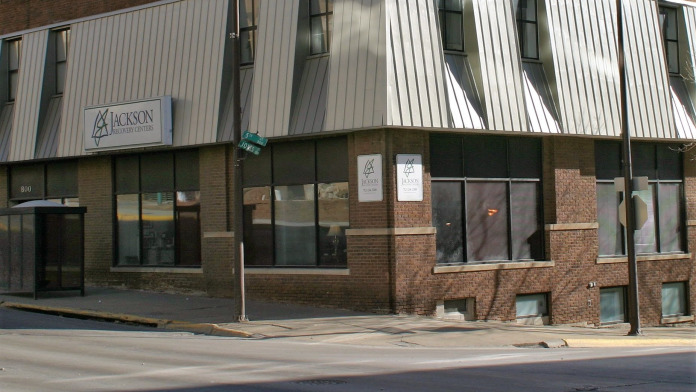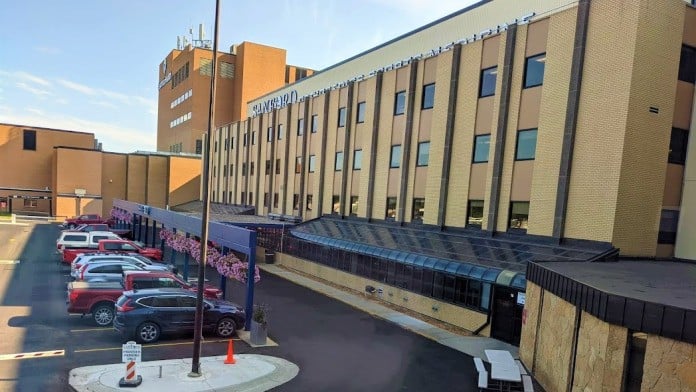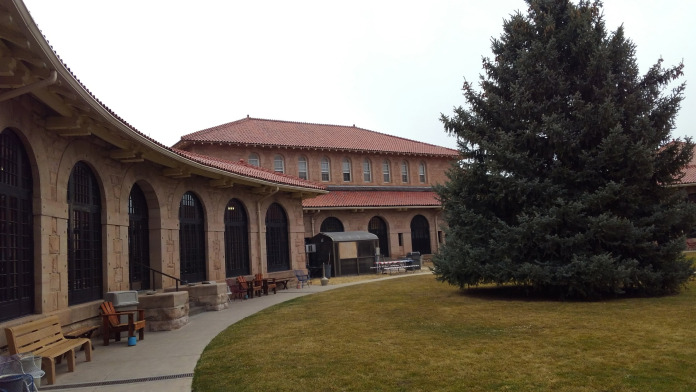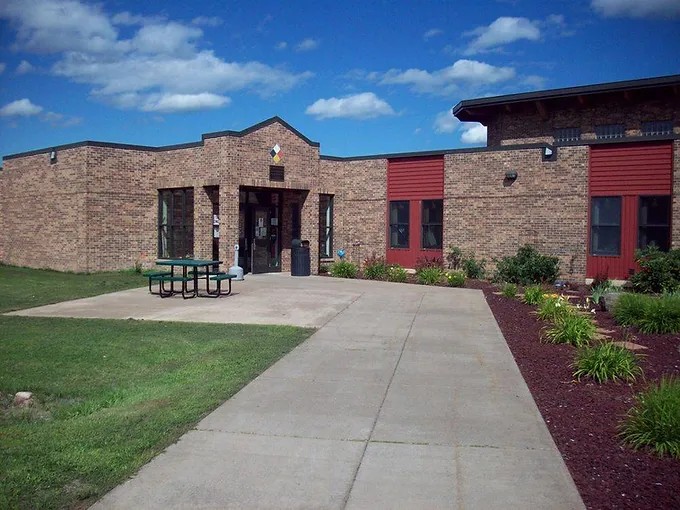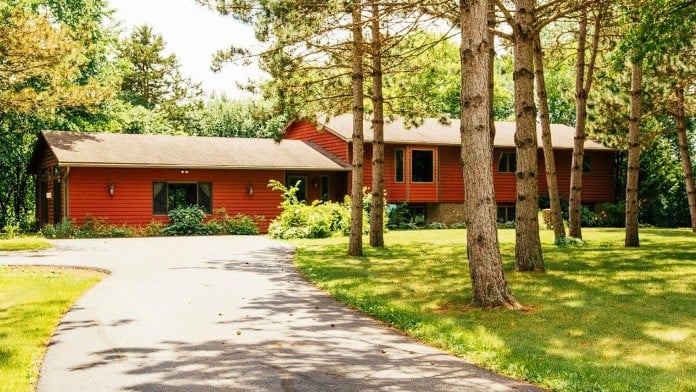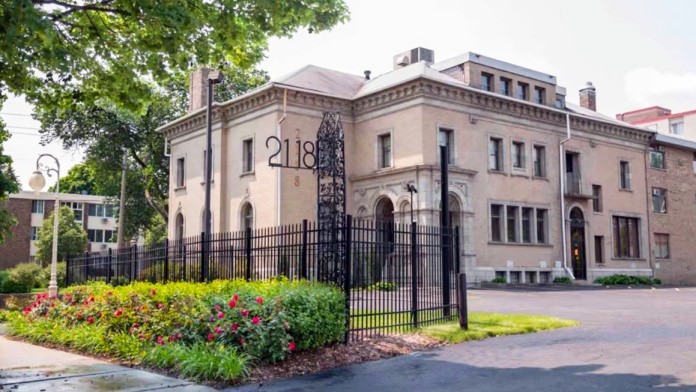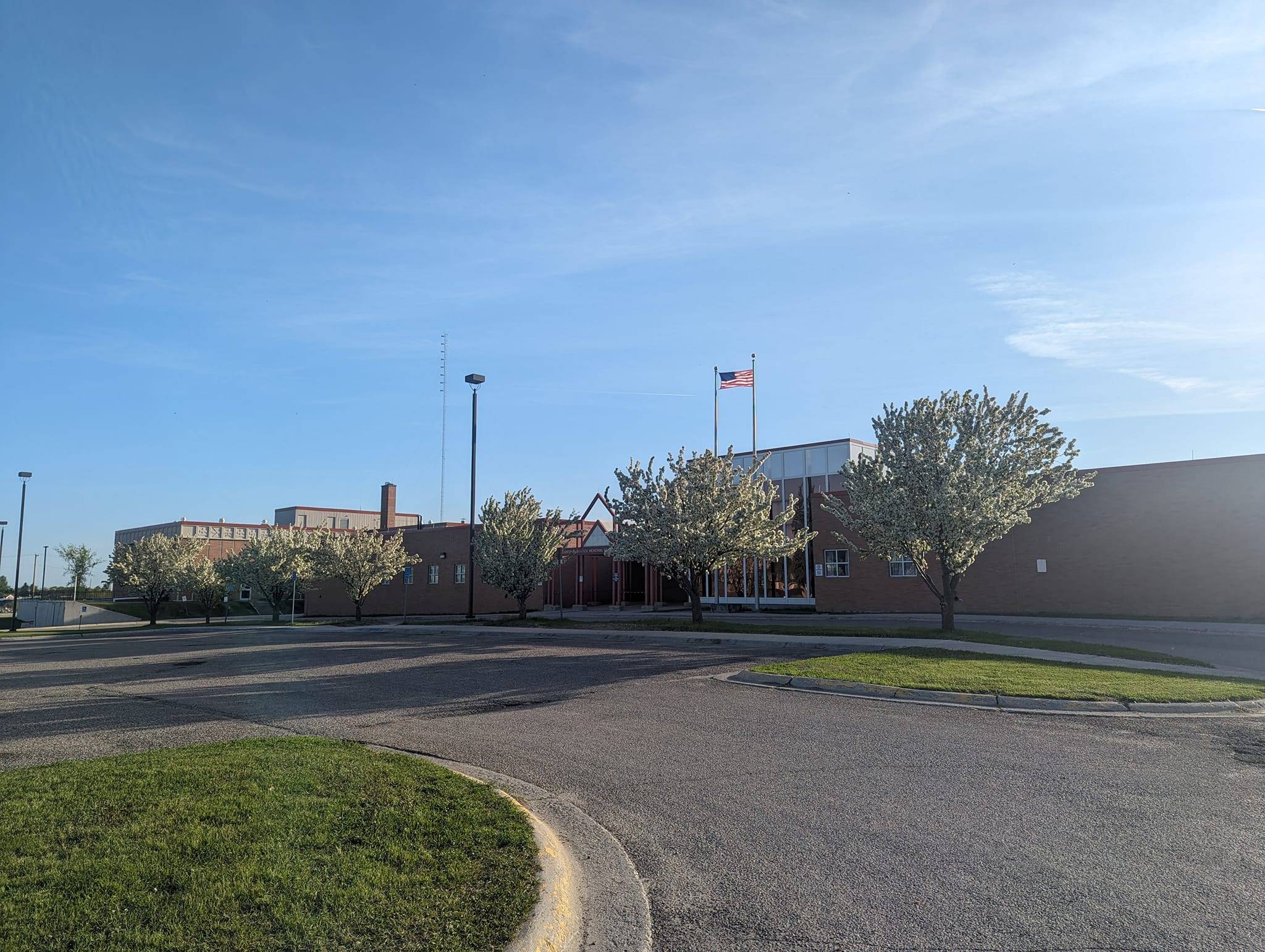They told that they are going to call, a week past alredy and they never call me. Horrible service.
About Trinity Health St. Joseph’s Hospital
Trinity Hospital–St. Joseph’s is a comprehensive, 12 step focused addiction recovery and mental healthcare facility in Minot, North Dakota. They offer intervention services, medically supervised detox, and inpatient, outpatient, and aftercare programs for youth and adults, including dedicated programs for seniors, teens, children, and young adults.
Clients undergoing detox at Trinity Hospital–St. Joseph’s receive round the clock medical supervision. FDA approved medications may be prescribed to ease withdrawal symptoms and prevent potentially serious complications.
The inpatient program at Trinity Hospital–St. Joseph’s allows clients to focus on their recovery in a private, home like setting with premium amenities, including onsite recreational facilities. Residents engage in intensive, DBT based individual, group, and family therapy. They also develop an array of recovery focused life skills, including courses in coping, trauma resolution, self care, wellness, and relapse prevention. Their personalized treatment plans include evidence based complementary therapies, ranging from nutrition to exercise and recreational therapy.
Trinity Hospital–St. Joseph’s provides a full suite of aftercare services to promote clients’ long term recovery and their successful reintegration into their homes, workplaces, and communities. Services may include career counseling, vocational training, peer coaching, 12 step program induction, and social services referrals.
Trinity Hospital–St. Joseph’s is Joint Commission accredited. They accept private insurance, military insurance, Medicaid, Medicare, self pay, and daily payment plans.
Facility Overview
Latest Reviews
Rehab Score
Gallery
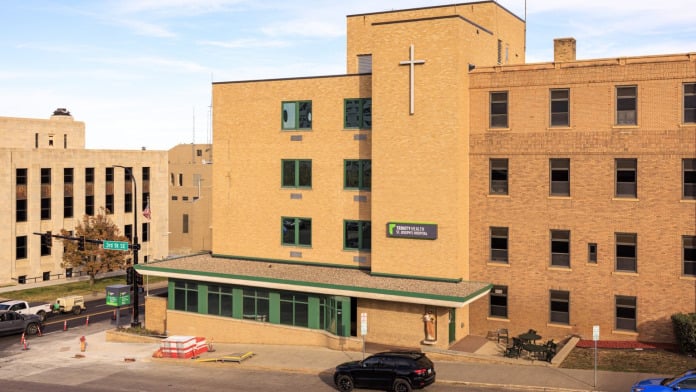
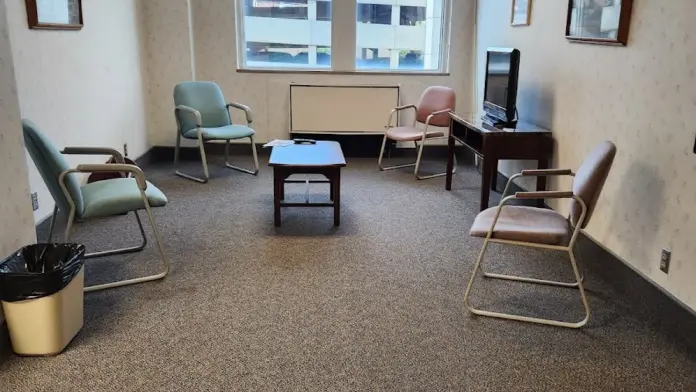
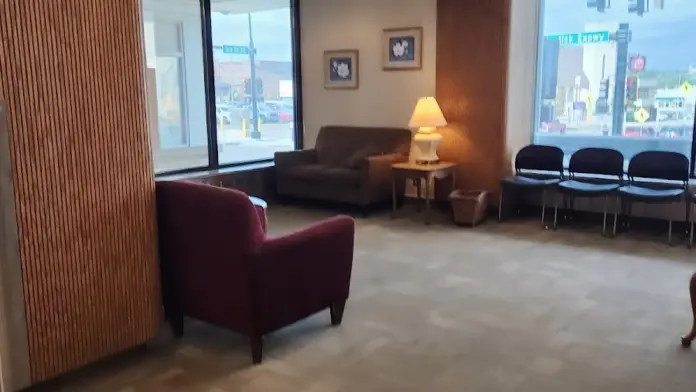
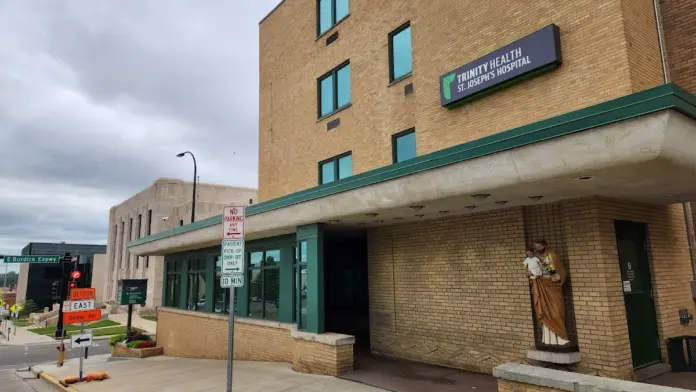
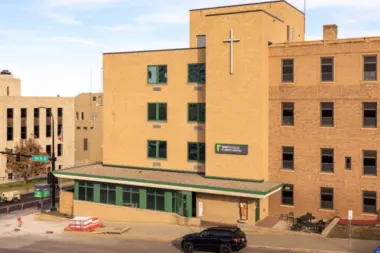
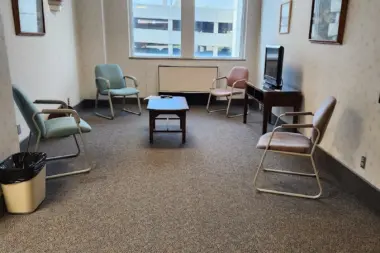
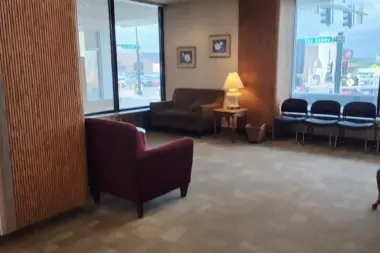
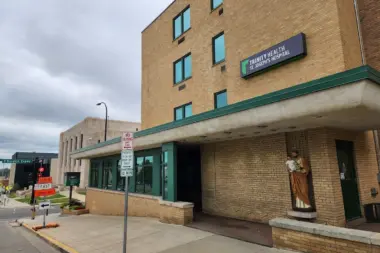
Other Forms of Payment
Private insurance refers to any kind of healthcare coverage that isn't from the state or federal government. This includes individual and family plans offered by an employer or purchased from the Insurance Marketplace. Every plan will have different requirements and out of pocket costs so be sure to get the full details before you start treatment.
Self-pay involves paying for treatment out of your own pocket. You can use savings or credit, get a personal loan, or receive help from family and friends to fund your treatment. If you don't have insurance or your insurance plan doesn't cover a specific program, self-pay can help ensure you still get the care you need.
Financial aid can take many forms. Centers may have grants or scholarships available to clients who meet eligibility requirements. Programs that receive SAMHSA grants may have financial aid available for those who need treatment as well. Grants and scholarships can help you pai for treatment without having to repay.
Medicare is a federal program that provides health insurance for those 65 and older. It also serves people under 65 with chronic and disabling health challenges. To use Medicare for addiction treatment you need to find a program that accepts Medicare and is in network with your plan. Out of pocket costs and preauthorization requirements vary, so always check with your provider.
Medicaid is a state based program that helps lower-income individuals and families pay for healthcare. Medicaid covers addiction treatment so those enrolled can use their coverage to pay for rehab. When a program accepts Medicaid the client often pays very little or nothing out of their own pocket.
Addiction Treatments
Levels of Care
Residential treatment programs are those that offer housing and meals in addition to substance abuse treatment. Rehab facilities that offer residential treatment allow patients to focus solely on recovery, in an environment totally separate from their lives. The Inpatient Mental Health Unit is divided into adult and adolescent units. The unit serves a population of adults 18 and above, adolescents age 13 to 18 and children ages 4 to 12. Primary diagnosis of adults who are admitted for inpatient needs, but are not limited to, include major depression, depressive disorders, schizophrenia and recurrent psychotic disorders.
Outpatient Programs (OP) are for those seeking mental rehab or drug rehab, but who also stay at home every night. The main difference between outpatient treatment (OP) and intensive outpatient treatment (IOP) lies in the amount of hours the patient spends at the facility. Most of the time an outpatient program is designed for someone who has completed an inpatient stay and is looking to continue their growth in recovery. Outpatient is not meant to be the starting point, it is commonly referred to as aftercare.
Intensive Outpatient Programs (IOP) are for those who want or need a very structured treatment program but who also wish to live at home and continue with certain responsibilities (such as work or school). IOP substance abuse treatment programs vary in duration and intensity, and certain outpatient rehab centers will offer individualized treatment programs.
Clients engaged in a rehab aftercare program may be receiving outpatient treatment or they may have already been discharged from formal treatment after completing intensive inpatient and/or outpatient care. These programs are designed to support clients' long-term sobriety through a robust continuum of care customized for clients' unique and evolving needs. Peer coaching, career counseling, relapse prevention, and 12 step program induction are among the most common rehab aftercare services.
Intervention services helps family or friends of addicts stage an intervention, which is a meeting in which loved ones share their concerns and attempt to get an addict into treatment. Professional intervention specialists can help loved ones organize, gather, and communicate with an addict. They can guide intervention participants in describing the damage the addict's behavior is causing and that outside help is necessary to address the addiction. The ideal outcome of an intervention is for the addict to go to rehab and get the help they need.
In a partial hospitalization program (PHP), you'll experience intensive rehab with the ability to return home each day. PHP treatment is recommended for those with moderate to severe addictions that don't require 24/7 care. A partial hospitalization program serves as an alternative to inpatient hospitalization or as a step-down option. Throughout the week, you'll attend meetings for 4-8 hours each day, up to 3-5 days a week, for an average of 90 days. Medication management, evidence-based therapies, and relapse prevention are typical components of PHP treatment.
Drug and alcohol addiction often takes a heavy toll on one's body. Over time, a physical dependence can develop, meaning the body physiologically needs the substance to function. Detox is the process of removing drugs and/or alcohol from the body, a process that can be lethal if mismanaged. Medical detox is done by licensed medical professionals who monitor vital signs and keep you safe, healthy, and as comfortable as possible as you go through detox and withdrawal.
Treatments
The goal of treatment for alcoholism is abstinence. Those with poor social support, poor motivation, or psychiatric disorders tend to relapse within a few years of treatment. For these people, success is measured by longer periods of abstinence, reduced use of alcohol, better health, and improved social functioning. Recovery and Maintenance are usually based on 12 step programs and AA meetings.
The goal of drug rehab in North Dakota is to help individuals overcome addiction. These programs provide treatment for both mind and body and teach participants how to live healthy, productive lives without drug abuse.
A combined mental health and substance abuse rehab has the staff and resources available to handle individuals with both mental health and substance abuse issues. It can be challenging to determine where a specific symptom stems from (a mental health issue or an issue related to substance abuse), so mental health and substance abuse professionals are helpful in detangling symptoms and keeping treatment on track.
Opioid rehabs specialize in supporting those recovering from opioid addiction. They treat those suffering from addiction to illegal opioids like heroin, as well as prescription drugs like oxycodone. These centers typically combine both physical as well as mental and emotional support to help stop addiction. Physical support often includes medical detox and subsequent medical support (including medication), and mental support includes in-depth therapy to address the underlying causes of addiction.
Programs
Adult rehab programs include therapies tailored to each client's specific needs, goals, and recovery progress. They are tailored to the specific challenges adult clients may face, including family and work pressures and commitments. From inpatient and residential treatment to various levels of outpatient services, there are many options available. Some facilities also help adults work through co-occurring conditions, like anxiety, that can accompany addiction.
Young adulthood can be an exciting, yet difficult, time of transition. Individuals in their late teens to mid-20s face unique stressors related to school, jobs, families, and social circles, which can lead to a rise in substance use. Rehab centers with dedicated young adult programs will include activities and amenities that cater to this age group, with an emphasis on specialized counseling, peer socialization, and ongoing aftercare.
Clinical Services
Unlike some therapeutic methods, cognitive behavioral therapy in North Dakota focuses on the present rather than the past. The goal is to move forward with new patterns of thinking and behavior that are healthy and productive.
Dialectical Behavior Therapy (DBT) is a modified form of Cognitive Behavioral Therapy (CBT), a treatment designed to help people understand and ultimately affect the relationship between their thoughts, feelings, and behaviors. DBT is often used for individuals who struggle with self-harm behaviors, such as self-mutilation (cutting) and suicidal thoughts, urges, or attempts. It has been proven clinically effective for those who struggle with out-of-control emotions and mental health illnesses like Borderline Personality Disorder.
Group therapy is any therapeutic work that happens in a group (not one-on-one). There are a number of different group therapy modalities, including support groups, experiential therapy, psycho-education, and more. Group therapy involves treatment as well as processing interaction between group members.
In individual therapy, a patient meets one-on-one with a trained psychologist or counselor. Therapy is a pivotal part of effective substance abuse treatment, as it often covers root causes of addiction, including challenges faced by the patient in their social, family, and work/school life.
Motivational interviewing helps you find internal motivation to change. If you're feeling insecure about your ability to change or ambivalent about the need for change, this method can help you explore your options and motivations.
Trauma therapy aims to help you heal from the emotional and physical effects that are common after witnessing or experiencing a traumatic event. Working with a therapist, you learn to process the experience and develop healthy coping strategies that reduce your anxiety and improve your self confidence.
Whether a marriage or other committed relationship, an intimate partnership is one of the most important aspects of a person's life. Drug and alcohol addiction affects both members of a couple in deep and meaningful ways, as does rehab and recovery. Couples therapy and other couples-focused treatment programs are significant parts of exploring triggers of addiction, as well as learning how to build healthy patterns to support ongoing sobriety.
Research clearly demonstrates that recovery is far more successful and sustainable when loved ones like family members participate in rehab and substance abuse treatment. Genetic factors may be at play when it comes to drug and alcohol addiction, as well as mental health issues. Family dynamics often play a critical role in addiction triggers, and if properly educated, family members can be a strong source of support when it comes to rehabilitation. At Trinity Health they offer parenting classes and FAST (Families and Schools Together) / Nurturing Parenting Classes.
Life skills trainings involve all the skills a person must have in order to function successfully in the world. These include time management, career guidance, money management, and effective communication. Truly successful addiction recovery is based on the ability to not only live substance-free, but to thrive. Life skills teaches the practical necessities of functioning in society, which sets clients up for success in life, and therefore sobriety.
Nutrition therapy includes input from doctors and nutritionists to develop a dietary plan that supports your recovery. You'll get nutritional support, learn to develop meal plans, and set goals for daily nutrition.
Tobacco use leads to nicotine dependence. This means your body has become dependent on the substance, and you'll experience withdrawal if you stop using it. Nicotine replacement therapy gives you nicotine in the form of patches, sprays, gum, or lozenges to relieve withdrawal symptoms and help you quit successfully.
Amenities
-
Residential Setting
-
Private Setting
Staff & Accreditations
Staff
John M. Kutch
President & CEO
Patrick Holien
Chairman
Ben Anderson, MBA, BSN
Assistant Chief Nursing Officer & VP of Patient Care
Pam Hopkins
Vice President/Marketing and Communications
Jason Hotchkiss, CPA
Chief Financial Officer
Wade Peterson
VP Long Term Care & Ancillary Services
Buffie L. Salo, MHA
Vice President/Ambulatory Care Strategies
Christopher M. Van Gels
Vice President & Facilities Management
Accreditations

The Joint Commission, formerly known as JCAHO, is a nonprofit organization that accredits rehab organizations and programs. Founded in 1951, the Joint Commision's mission is to improve the quality of patient care and demonstrating the quality of patient care.
Joint Commission Accreditation: Yes
Contact Information
407 3rd Street SE
Minot, ND 58701
